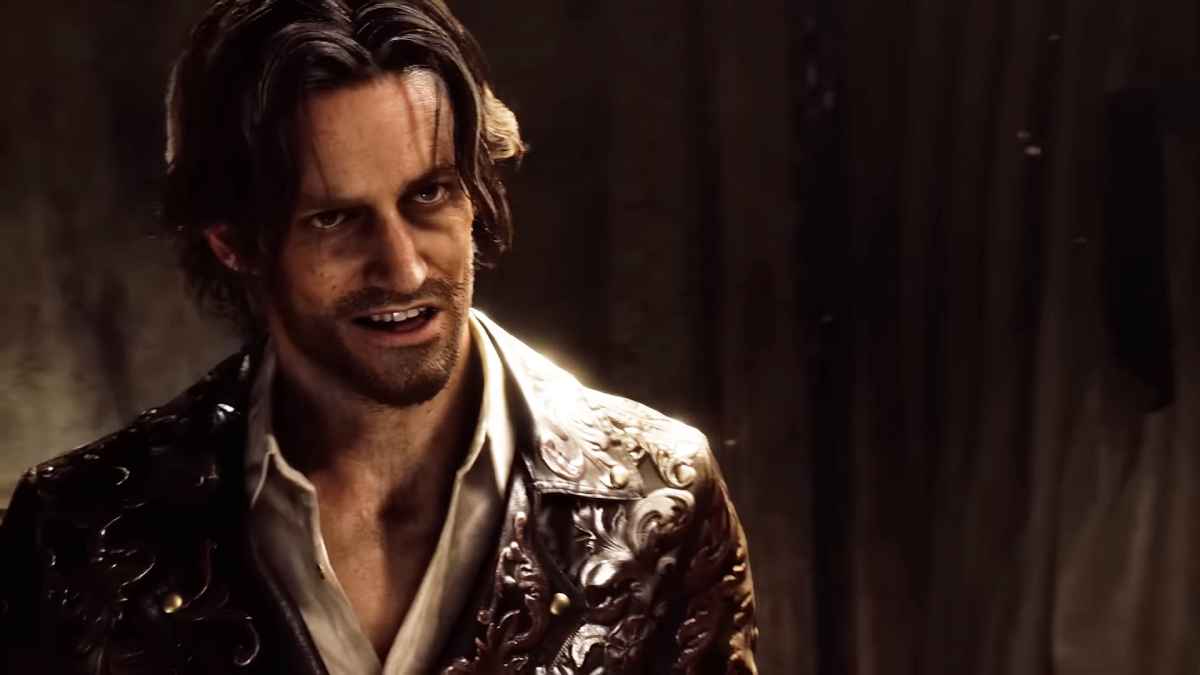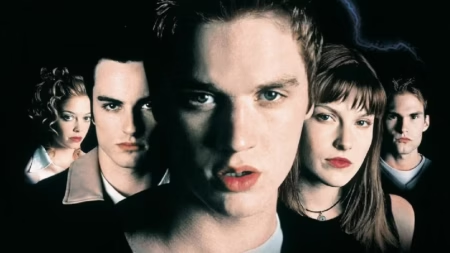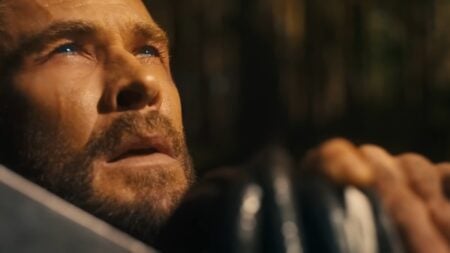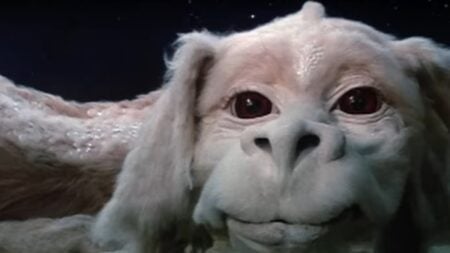Skip To...
The Resident Evil film series reminds us of the era of the so-called “video game movie curse.” I’ve always maintained that the supposed curse is nonsense that only passes without critique if you ignore several solid animated entries, but Resident Evil is no such exception. The film and its five sequels remain laughing stocks among the fan base, but isn’t there still something worth saving in that reanimated corpse?
This Capcom franchise comes from the mind of director Paul W. S. Anderson. He initially made a name for himselfamong video game movies with the classic 1995 Mortal Kombat adaptation. While that film now enjoys a cultural reappraisal that grants it high-camp glory, his other works are less impressive. Anderson’s opus might be Event Horizon, a cult classic sci-fi horror piece. His next questionable prospect sees him adapt a George R. R. Martin short story.
Resident Evil Was Already A B-Movie
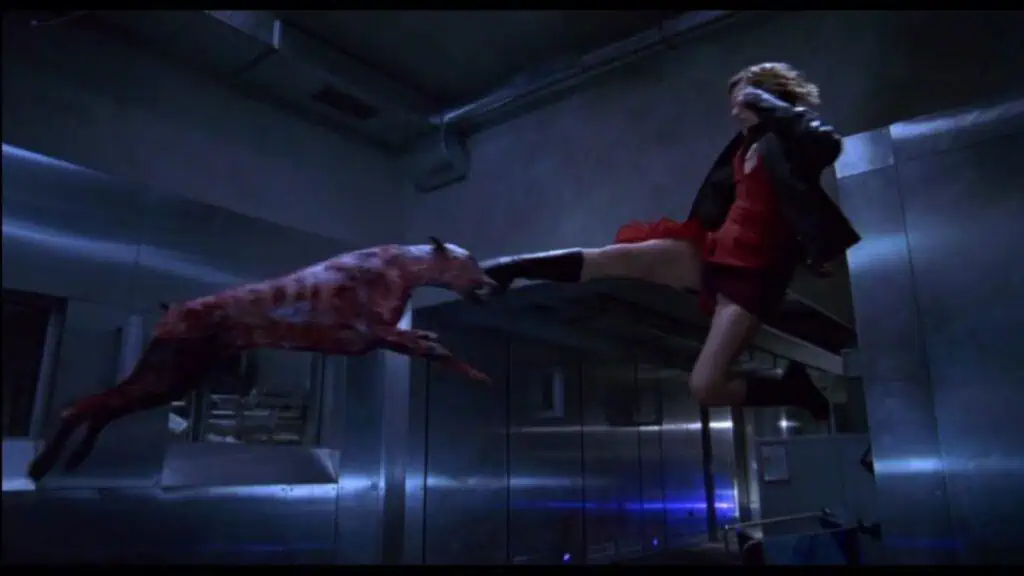
Paul W. S. Anderson’s Resident Evil follows Alice and a team of mercenaries as they plumb the depths of an Umbrella Corporation laboratory. It’s not an adaptation of a single game, but it pulls bits and pieces from its seven potential source materials. The basic gimmick fits the franchise well. Yet again, a team of mercenaries takes on a hostile science environment with terrifying consequences. Each of the soldiers carries a bit of personality, but the actors pull that weight with different levels of enthusiasm. The overarching plot is weak, relying too heavily on an amnesia storyline, but there are interesting details in the mix. Like each game, the movie takes its cast through some compelling levels with interesting set pieces. I believe that it is and has always been unfair to say that this film doesn’t fit the source material.
This is a Resident Evil adaptation that understands a lot, though not quite all, of the appeal of the franchise. It’s silly; the tone is all over the place, and a lot of the thematic details don’t work, but the film inherits those issues. In execution, the 2002 movie doesn’t have the same charm, but it does play in a lot of the same stages. Survival horror is easier to do in an interactive medium, but Resident Evil captures a strong percentage of the franchise’s tension. If you can convince yourself to care about the characters, you’ll get the same unease you feel when you’re running low on resources and too far from a save room. From the laser hallway to the train sequence, it’s a compelling ride. You’ll enjoy this film as a brainless action experience, but that is barely a fair metric.
But Is There Anything Under That Underground Lab?
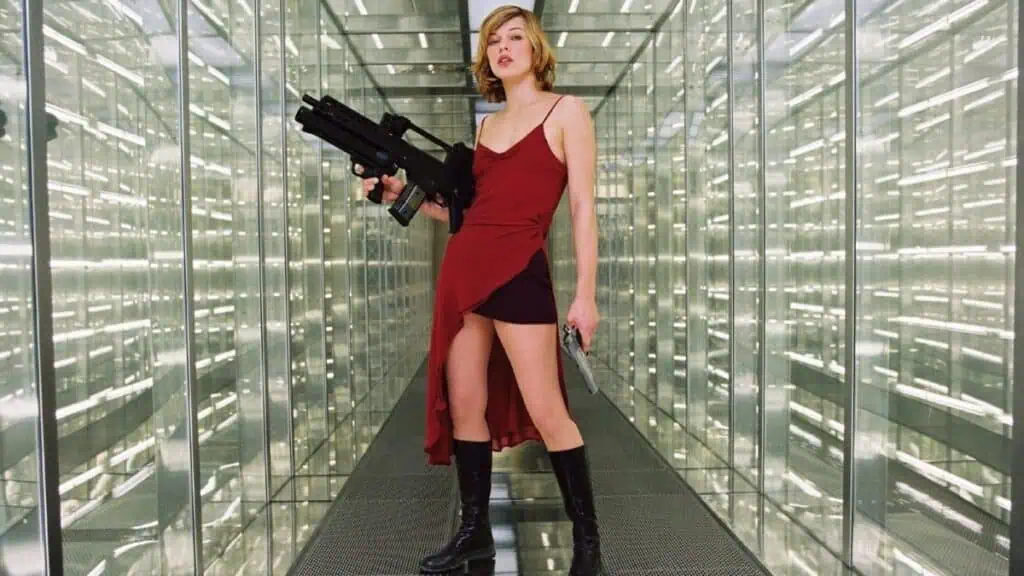
I know Resident Evil stands as a semi-enjoyable, brainless action/horror outing, but aren’t those fireworks displays more fun when they’re celebrating something? The compelling thematic elements are few and far between here. As usual,the zombies are a force multiplier that accentuates the real villains. There’s no shortage of films about the evils of corporations or big pharma in particular. This one lacks nuance, but it feels somewhat venomous. Umbrella is the architect of everything wrong in this world, executing evil on a comical scale. There is no real social commentary in their Captain Planet-esque schemes. There are, however, some unique details in the design work.
While Alice and company mostly struggle against the undead, one of their earliest foes is the security system in the underground lab. The Red Queen is a holographic AI system that initiates the iconic laser hallway section. While that moment remains excellent in a dumb, fun way, the Red Queen stands out among the film’s narrative elements. See, the Red Queen tries to kill the protagonists, making her an antagonist, but she’s actually the most competent force working against the villains. This leaves the heroes stuck between saving their own lives and containing an outbreak. The question heightens as one of their own becomes infected. A little more focus on these somewhat intelligent details would have really pulled this movie into higher territory.
A Frontloaded Franchise
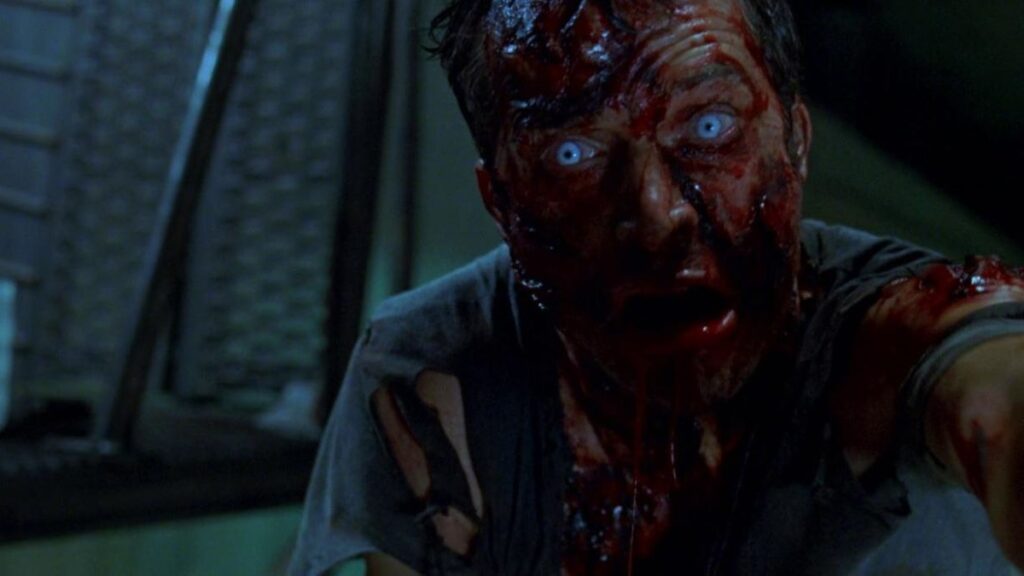
If you need to feel the love for Resident Evil, consider watching any of its sequels. The first film is a gargantuan accomplishment when you compare it to the very next entry in the franchise. Every other film, save for Welcome to Raccoon City, is a complete fan film disaster. It really brings the first entry’s virtues into focus. It’s an adaptation that plays in the franchise’s space without blandly redoing any particular story. It boldly captures the feel without feeling too married to the awkward bits. This is a B-movie that not only loves Resident Evil but also loves the B-movies it took inspirationfrom. The finished product is no masterpiece, but there’s plenty to enjoy about Anderson’s first outing.
Resident Evil is a decent sci-fi horror action romp that deserves more positive attention. Sure, some of the performances don’t work, much of the dialogue is bad, the CGI is dated, and the lore doesn’t translate. Those are all fair criticisms, but none of them stop the film’s unwavering commitment to unhinged fun by way of tension. It’s not as scary as it could be, but a willing viewer can find a lot to like in Umbrella’s lab. You just can’t pass on a movie in which Michelle Rodriguez fights zombies while she’s turning into one. While you’re at it, revisit the animated movies; they’re absolutely wild.


